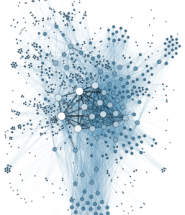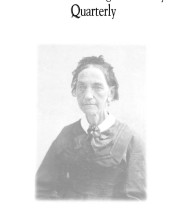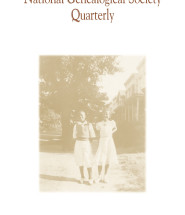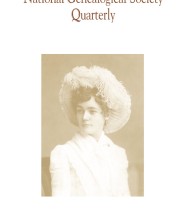NGSQ Archive
31 Jan 2023
Decoding the Numbers: Genealogical Numbering Systems
By Katharine Korte Andrew On 31 January 2023 In NGS Monthly
If you have read a genealogy publication or explored popular family tree software, you have likely seen numbers assigned to individuals in family trees. What do these numbers mean? Why are there so many different numbering systems?
20 Jan 2017
Creativity in Genealogical Research
By Laura Murphy DeGrazia, CG On 20 January 2017 In Uncategorized
Genealogists’ work is grounded in sources—in records, artifacts, images, traditions, and other items that provide information used as evidence. But sources and the information they provide are only part of any given solution to a problem. Skilled,
15 Nov 2016
In-depth Record Analysis: An Example from National Genealogical Society Quarterly
By Laura DeGrazia On 15 November 2016 In Uncategorized
Most of us have probably encountered a situation where a record seems unusual. We may be tempted to overlook the problem, accept the information, and move on to other research. When George Findlen found duplicate entries in
12 Jul 2016
Visualizing Information for Analysis and Correlation
By Melissa Johnson On 12 July 2016 In Uncategorized
The first element of the Genealogical Proof Standard (GPS)—reasonably exhaustive research[1]—calls for digging into the circumstances of a research subject’s life, and identifying sources and strategies that may help provide an answer to a specific research question.
5 Jun 2016
Indirect Evidence to Identify an Ancestral Homeland
By Melissa Johnson On 5 June 2016 In Uncategorized
Identifying an immigrant ancestor’s origins is one of the most common quests among family historians. A variety of sources created during and after an immigrant ancestor’s lifetime often provide direct evidence of his or her birth location.
16 May 2016
Assessing Reliability of Information
By Melissa Johnson On 16 May 2016 In Uncategorized
Assessing the reliability of information is a crucial and necessary step toward drawing genealogical conclusions. Researchers should never accept a piece of information as fact without first evaluating and analyzing it. This holds true for instances in
15 Feb 2016
Resolving A Question of Identity in NGSQ
By Melissa Johnson On 15 February 2016 In Uncategorized
Successful research involves identifying a specific person of interest and developing a focused research question about that person. Genealogical research questions are usually centered on problems of identity, relationship, or circumstance. Most of the case studies published
7 Nov 2015
A Lesson in Reasonably Exhaustive Research
By Melissa Johnson On 7 November 2015 In Uncategorized
Genealogists who reconstruct their family histories must meet the Genealogical Proof Standard (GPS) to ensure that their conclusions are sound. The first element of the GPS is “reasonably exhaustive research—emphasizing original records providing participants’ information—for all evidence
16 Sep 2015
Don’t Miss the NGSQ Editors’ Corner
By Melissa Johnson On 16 September 2015 In Uncategorized
Some readers of the National Genealogical Society Quarterly (NGSQ) may be so focused on getting into the newest case studies that they skip over an important piece of NGSQ—the Editors’ Corner. Written each issue by NGSQ co-editors
11 Jun 2015
DNA As a Genealogical Source
By Melissa Johnson On 11 June 2015 In Uncategorized
Over the past five years, an increasing number of National Genealogical Society Quarterly (NGSQ) articles have incorporated a new genealogical source: DNA test results. While not necessary to solve every genealogical problem, there are instances when DNA test results supply
- 1
- 2








